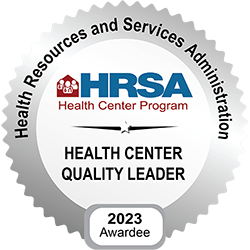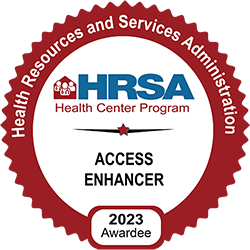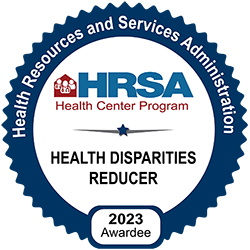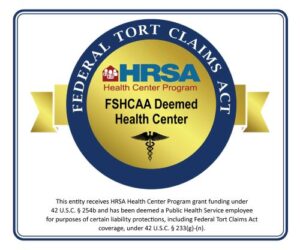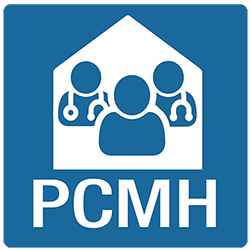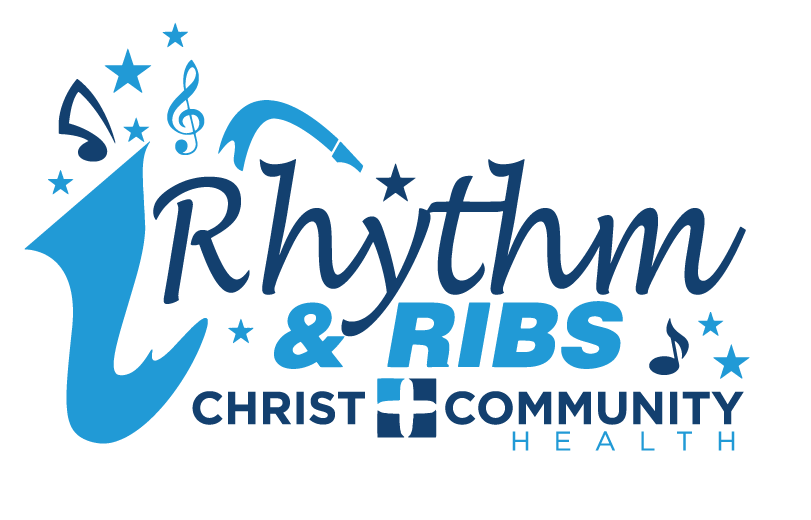COVID-19
We do not offer walk-in COVID testing. We can test for COVID-19 if you have an appointment.
Christ Community does not offer Covid tests for non-established patients. Patients have to be seen by a doctor and the doctor can decide if they need a Covid test.
Barney’s Pharmacy has a COVID Vaccine Clinic on Mondays & Fridays at no cost to the patient. They are currently giving out the Moderna vaccine and patients can sign up online or call (706) 798-5645 to be scheduled.
Masks are still required regardless of vaccination status. All CCH staff and patients are expected to wear a mask.
Get Free At-Home COVID-19 Tests
Every home in the U.S. is eligible to order 4 free at-home COVID-19 tests. Orders will usually ship in 7-12 days.
Vaccine FAQs
Vaccination is the best way to protect yourself, your family and your community. Vaccinating yourself is your best chance in preventing emergency visits related to COVID-19.
Through clinical studies, the approved vaccines have gone through rigorous testing — and they’ve been found to be both safe and effective at preventing COVID-19.
COVID-19 is still widespread, and we all have a significant risk of getting it given the current infection rate. The risks of COVID-19 and complications from it are far worse than the risks of the vaccines themselves. Vaccination will significantly reduce both the number of COVID-related deaths and serious health issues that many survivors face. Also, if you have family members who are immunocompromised, vaccinating yourself will prevent you from potentially spreading COVID-19 to them.
In a nutshell: The faster our community gets vaccinated, the sooner we can all get our lives back!
All the COVID-19 vaccines being used have gone through rigorous studies to ensure they are as safe as possible. The CDC has systems in place to watch for safety issues across the entire country.
Tens of thousands of people safely and successfully participated in clinical trials, including people of all ages, races and ethnicities. The trials also included people who have other health conditions, such as diabetes, HIV, heart disease, lung disease and more.
The top vaccine experts in the world reviewed and approved the results of these trials. For more information, visit the Georgia Department of Public Health’s COVID Vaccine information website.
No. None of the COVID-19 vaccines contain the live virus that causes COVID-19. This means that a COVID-19 vaccine cannot make you sick with COVID-19. You do not need to quarantine after receiving the vaccine.
Vaccines teach our immune systems how to recognize and fight the virus that causes COVID-19. Sometimes this process can cause symptoms, such as fever. These symptoms are normal and are signs that the body is building protection against the virus that causes COVID-19. Click here to learn more about how COVID-19 vaccines work.
The COVID-19 vaccine provides a very high level of protection in comparison to other recommended vaccines.
- Between days 1-14 after the first shot, the vaccine is 50% effective.
- 2 weeks following the second shot, the vaccine is 94% effective in preventing COVID-19 symptoms.
- The vaccine protects 100% of recipients against severe COVID-19 disease, hospitalization, and death.
Both the Pfizer and Moderna vaccines require two doses, and the second dose is essential to receive maximum protection.
We recommend you consult your allergist or primary care provider about whether your allergy would prevent you from receiving the vaccine. The CDC has said that people with most allergies can get the vaccine. The CDC advises caution for people who have a history of severe allergic reaction (e.g., anaphylaxis) to another vaccine or an injectable medication.
The CDC also advises against vaccination for people with a history of severe allergic reaction to any component of the vaccines. Click here to see the ingredients of the Moderna vaccine.
Pregnant women are more likely to get severely ill with COVID-19 compared with non-pregnant women. If you are pregnant, you can receive a COVID-19 vaccine, which can protect you from severe illness from COVID-19. Based on how these vaccines work in the body, experts believe they are unlikely to pose a risk for people who are pregnant. However, there is currently limited data on the safety of COVID-19 vaccines in pregnant women. If you are pregnant, follow up with your OB-GYN or your primary care provider about receiving the vaccination.
COVID-19 vaccines are also thought not to be a risk to lactating women or their breastfeeding babies. Therefore, women who are breastfeeding can receive a COVID-19 vaccine. Recent reports have shown that breastfeeding women who have received COVID-19 mRNA vaccines have antibodies in their breastmilk, which could help protect their babies. More data are needed to determine what protection these antibodies may provide to the baby.
Yes. People who have had COVID-19 before should still get vaccinated to build longer lasting protection. Those who have never had COVID-19 should be vaccinated to prevent against COVID-19 as well. If you were treated for COVID-19 symptoms with monoclonal antibodies or convalescent plasma, you should wait 90 days before getting a COVID-19 vaccine. Talk to your medical provider if you are unsure what treatments you received or if you have more questions about getting a COVID-19 vaccine.
The most common side effect is a sore arm. Vaccine side effects are usually like those of the flu or shingles vaccine. Other side effects may include fever, chills, muscle aches, headache, fatigue, and nausea. These side effects only last 1-3 days. Keep in mind that these mild symptoms are actually a sign that your body is building protection to the virus. These side effects are more common after the second dose than the first dose. Side effects are less common in older patients ( > 65 years old).
When you receive the vaccine, you have the option to enroll in V-Safe, which allows the CDC to continue monitoring any side effects.
Health effects linked to vaccines generally start within 6 weeks of vaccination. COVID-19 vaccine effects have been monitored for months now with no proven long term negative health effects. Effects will continue to be monitored closely.
Yes. The vaccine can prevent disease for those at higher risk for severe COVID-19 complications. It may be given to those with underlying conditions such as diabetes or diseases involving the heart, lungs, kidneys, liver, blood, immune system. People with cancer should contact their oncologist for more information.
The Pfizer vaccine has been approved for ages 5 and up.
The CDC and FDA take many steps to ensure that any vaccine is safe. These vaccines are being tested in large numbers of people to look at both safety and effectiveness.
The rapid development and production has been possible because the mRNA vaccine technology is much more efficient than prior methods of producing vaccines and can be scaled up quickly.
It’s important to note that this is not the first time we’ve had a vaccine developed this quickly. With H1N1, we started seeing cases in March 2009, and by October 2009 we had a vaccine.
Booster doses are currently recommended 6 months after the initial 2-dose series. (Pfizer and Moderna) and 2 months after the Johnson & Johnson vaccine. For more information on COVID-19 booster shots, please visit the CDC website.

